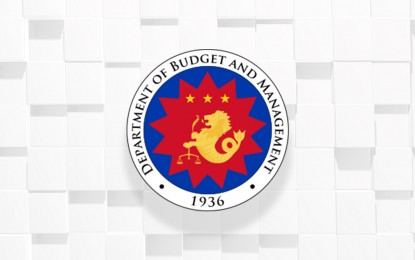
MANILA – There is no request from the Dangerous Drugs Board (DDB) to increase its budget for the implementation of its rehabilitation projects, the Department of Budget and Management (DBM) said Thursday.
The DBM issued the statement, after Senator Ronald dela Rosa on Monday called on the agency to release in full the nearly PHP127-million fund to the DDB for the establishment and maintenance of treatment and rehabilitation facilities nationwide.
“At the onset, we would like to set the record straight. The DBM has transmitted in full the funds of the DDB for the establishment and maintenance of treatment and rehabilitation facilities nationwide. In preparing and executing the DDB's budget, the DBM has and will continue to comply with relevant laws and regulations in line with its mandate,” it said.
“For FY (fiscal year) 2025 and past years, DDB did not submit any budget proposals to increase the programmed expenditure in the amount of PHP77 million under the SAGF (Special Account on the General Fund),” the DBM added.
During the Senate Committee on Finance hearing on Monday, DDB Undersecretary Earl Saavedra said the agency was supposed to access PHP126.9 million from the 2023 revenue collections for its rehabilitation programs but only received PHP77 million which was approved by the DBM.
The DBM said it did not violate any law, stressing it only followed what the DDB originally programmed for its projects.
The DBM said it supports the DDB's mandate to establish and maintain Drug Treatment and Rehabilitation Centers funded through its SAGF, adding that since 2020, it has granted its various requests for additional funding on top of its programmed expenditures, as long as the same is supported with sufficient actual revenue collections.
It said the DDB submitted its request for additional programming of PHP15 million on Dec. 7, 2023 but failed to support it with budget execution documents such as Financial and Physical Plans, Monthly Disbursement Program, as required under the DBM-published Citizen Charter.
“Also, with the limited number of days remaining before (2023) end[ed], we suggested the same be accommodated in FY 2024 Programmed Expenditure for SAGF, if still a priority of the agency. This will ultimately give ample time for the agency to implement the related project on establishing and maintaining treatment and rehabilitation facilities," it said.
The DBM said that for programming purposes, an estimated expenditure amount chargeable against the SAGF is needed.
It said it has been coordinating with the DDB to include in its proposal the total annual requirements needed for the rehabilitation programs so that it can be included in the National Expenditure Program (NEP).
“This forms part of the NEP level and supports the sound, efficient, and effective management and utilization of government resources,” the DBM said. “Nonetheless, if there is a need to increase the programmed expenditure under the SAGF of the DDB, the same shall be subject to actual revenue collections and fiscal programming of the national government.”
The DBM said it is releasing the amount as programmed supported with the actual collections remitted under the DDB’s SAGF.
“We would like to note that Senator Bato Dela Rosa has already instructed the DBM and DDB to have a meeting, and we shall be willing to accommodate the request to resolve the issue,” it said.
Budget for climate change response
Meanwhile, DBM Secretary Amenah Pangandaman urged Singaporean companies to invest in the green initiatives in the Philippines.
This, as Pangandaman cited the government's efforts to address climate change through strategic budget allocations, noting that it has exceeded its climate expenditure targets under the Philippine Development Plan 2023-2028.
Pangandaman said the Marcos administration was initially aiming for 12 percent of the national budget to support climate initiatives, but the allocation for 2025 rose to 16 percent.
“Over the past 10 years, climate-responsive spending has risen steadily by an average of 32.5 percent. For 2025, we’re seeing a 123 percent increase, reaching an impressive USD17.9 billion,” she said, noting that this rise has been tracked through the Climate Change Expenditure Tagging (CCET) system.
Pangandaman said one of government’s initiatives was the Green Public Procurement Strategy, which aims to develop a local green market, set an example for private-sector procurement, attract green investments, and broaden competition in government procurement.
She added that climate change and environmental standards are now essential criteria when evaluating public-private partnership (PPP) proposals, particularly in infrastructure, energy, and transportation projects.
She also mentioned that the key focus areas of the National Climate Change Action Plan (NCCAP) 2011-2028 include water sufficiency, sustainable energy, food security, knowledge and capacity development, climate-smart industries, and ecosystem stability.
“Nurturing a green economy is not just my personal advocacy; it is a top priority for our administration. Through our Climate Change Expenditure-tagged programs and innovative policies, we are driving high-impact investments that will propel growth while laying the foundation for a sustainable future,” Pangandaman said.
“We invite our partners and stakeholders to join us in taking the green path toward our Agenda for Prosperity,” she added. (PNA)
